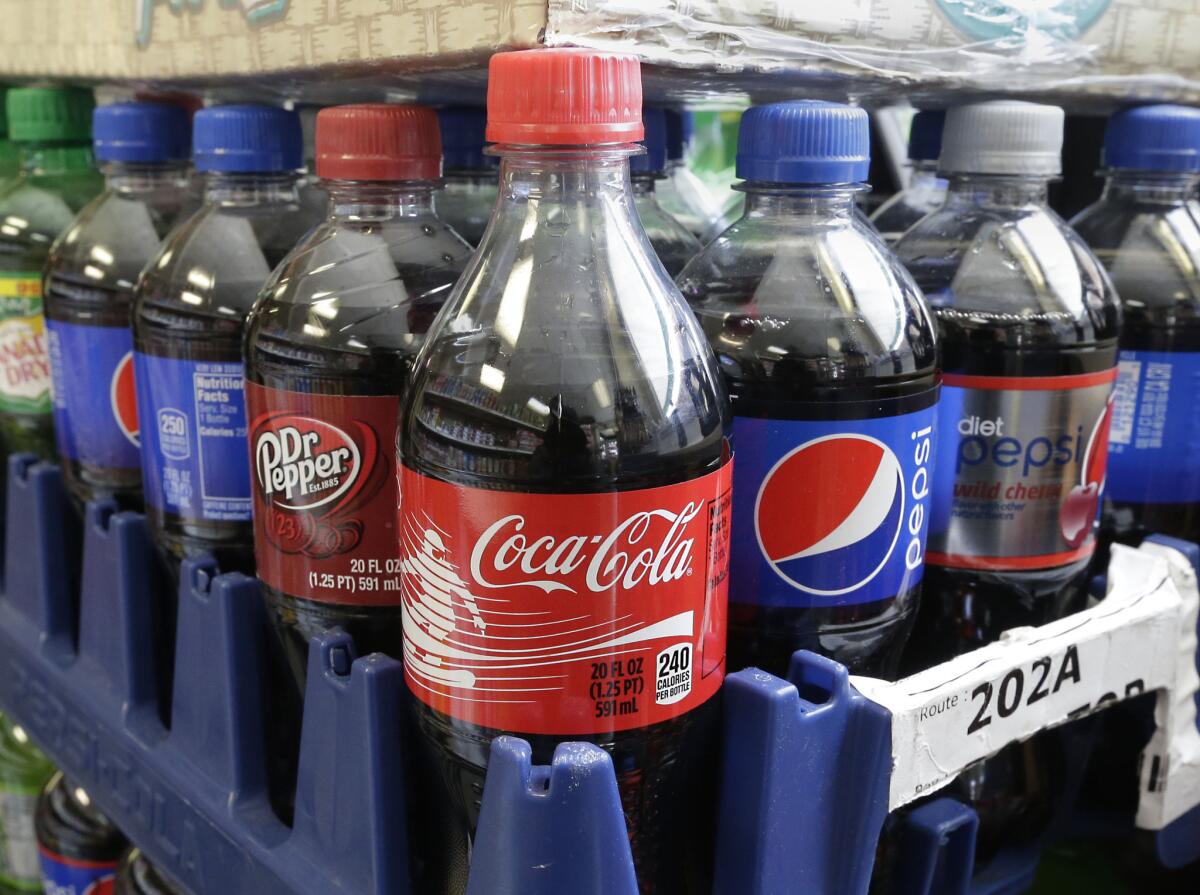Opinion: Warning: Sugary drink warning labels advance in Senate

A California Senate committee approved a bill Wednesday to mandate warning labels on sweetened drinks that contain at least 50 calories per cup. Which invites the question: Who reads drink labels?
Supporters of SB 1000, including Sen. Bill Monning (D-Carmel), Senate President Pro Tem Darrell Steinberg (D-Sacramento) and the California Medical Assn., argue that the labels are needed to fight obesity and diabetes. “Research shows that a soda or two a day increases the risk of diabetes by 26%,” the CMA said in a statement Wednesday. “Sugary drinks are also the single largest contributor of added calories in the American diet, responsible for 43% of the additional calories consumed over the last 30 years. Drinking just one soda a day increases an adult’s likelihood of being overweight by 27% and a child’s by 55%.”
Those are alarming statistics, granted. The question, though, is whether a label will persuade people to stop drinking something they already know is bad for their health.
For starters, consider the wording of the label the bill would mandate. It would say, “STATE OF CALIFORNIA SAFETY WARNING: Drinking beverages with added sugar(s) contributes to obesity, diabetes, and tooth decay.” Considering that the most popular drinks don’t contain sugar -- they use such substitutes as corn syrup -- consumers might assume that the warning didn’t apply to the specific bottle they’d just bought. And even if they did, the warning is neither daunting nor revelatory. I mean, “contributes to” obesity? Well, duh.
If lawmakers really wanted to discourage the consumption of sugary drinks, they’d do what policymakers did to cigarettes: hit them with sin taxes. But that would be no mean feat, considering how strongly beverage makers and possibly the rest of the food industry would push back. Because drink taxes would set a precedent for conducting public health policy through taxes on unhealthy ingredients (first in line: palm oil).
There’s also the unintended consequence of encouraging people to drink diet sodas, which have their own undesirable effects.
So, what should the Legislature do about sugary drinks? Take our willfully unscientific poll, leave a comment or do both.
ALSO:
Jeanie Buss talks about all things Lakers
The GOP’s 2016 handicap -- immigration
The lethal injection debate: How much should death row inmates know?Follow Jon Healey on Twitter @jcahealey and Google+
More to Read
A cure for the common opinion
Get thought-provoking perspectives with our weekly newsletter.
You may occasionally receive promotional content from the Los Angeles Times.











